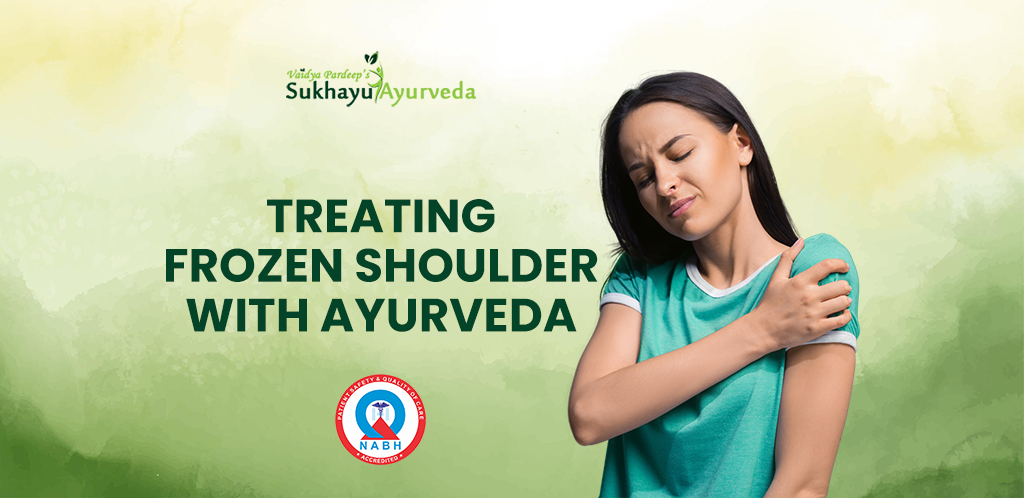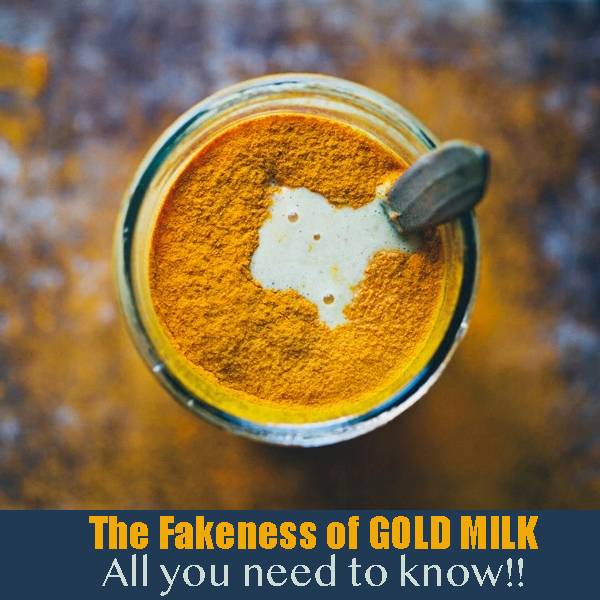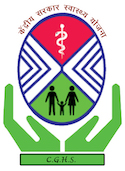Treating Frozen Shoulder with Ayurveda

It’s not uncommon to shrug off shoulder pain and stiffness by popping a pill. Nevertheless, be aware that a frozen shoulder can intensify until you cannot do your routine tasks. Subsequently, take any early pain seriously to obviate more severe problems down the road. If you incessantly self-medicate for small shoulder pains, the issue will only aggravate until it degenerates into something major like a frozen shoulder. Herein, we’ll go over how to treat frozen shoulders with Ayurveda practices.
What is Frozen Shoulder
A frozen shoulder is a long-term, painful stiffness of the shoulder joint that progresses and deteriorates over time. The pain and rigidity associated with a frozen shoulder can make it tough to move your arm. Some might think a frozen shoulder Mith arthritis, however, these two conditions have no connection. A frozen shoulder only involves the tissue around the shoulder joint while arthritis refers to multiple joints.
There are three stages to a frozen shoulder, each one lasting several months. In the initial stage, any movement of your shoulder could cause pain and you would start to see a decrease in your range of motion.
The pain may lessen as the condition develops, but your shoulder will become increasingly stiff and difficult to use. The stiffness can be disabling even after the pain goes away. You won’t be able to reach over your head or across your chest, turn your arm all the way around, scratch your back, etc.
In its final stages, you may start being able to move your shoulder more freely again, but you might have worse pain at night that affects your sleep patterns.
What causes a frozen shoulder?
The joints as per Ayurveda are placed for two doshas.
- Vata: This is responsible for movements in the joints.
- Kapha: To avoid erosion and damage due to friction during movement- it lubricates the joint with its greasy structure and avoids the damage.
When this Kapha (watery and muddy thing) dries up because of the Vata dosha (airy things which dry up everything). It freezes the movement of the joint.
So a frozen shoulder, which Ayurveda attributes to an imbalance of Vata dosha and a Vata-Kapha combination, can occur in anyone.
A frozen shoulder is more common in adults aged 40-60 and women are more likely to experience it than men. The condition happens when connective tissue around the affected joint thickens over time, making movement difficult or impossible. A frozen shoulder can be caused by an injury or surgery, but other conditions such as stroke, diabetes, and heart disease can also lead to its development.
The Ayurvedic Approach of Treating Frozen Shoulder
To treat a frozen shoulder with Ayurveda, also known as ‘Apabahuka,’ several approaches available. Depending on the individual case, an Ayurvedic doctor will suggest which approach is best. Because Ayurveda is personalized health science, each temporary disability requires a different method of treatment.
The root cause of the problem must be discovered before any solution can be provided. In order to pacify an aggravated Vata Dosha, herbal mixtures, churnas, Guggulu preparations and herbo-mineral rasa medicines are often used. This is due primarily to Vata Dosha being the primary condition causing this issue.
Many people believe that ‘Panchakarma Therapy‘ is key to treating this condition by unlocking the restricted movement in the shoulder. This is done through medicated lubrication and fomentation, as well as herbal enemas which work to bring balance back to the Vata dosa.
According to Ayurveda, there are several effective internal medications and external treatments for frozen shoulders. However, you should only receive these therapies from a qualified Ayurvedic physician, as they will be able to prescribe the right ones based on your particular body type and condition.
Ayurvedic Home Remedies and Treatments for Frozen Shoulder
- If you’re in pain, mix together the warm coconut oil or sesame oil with camphor and apply it to the area that hurts. Follow up by putting a warm compress on the same spot. Even though this method takes some time to work, it is effective.
- 3-4 crushed garlic cloves in half a glass of boiled milk can also be consumed Or try having a teaspoon of sesame oil mixed with warm water every morning.
- To relax your shoulder muscles, add some Epsom salt to warm water and use it for fomentation.
- If your condition is a result of high blood sugar, ‘Haridra’ and ‘Amalaki’ powder may help regulate the sugar levels.
- Turmeric and Alfalfa are two herbs that are effective in reducing inflammation as well as helping to repair shoulder tissue.
- Some specific Ayurvedic medicines, such as ‘Varunadhi Kwatha’ decoction (30ml twice a day before food), ‘Simhanada Guggulu (1 tablet twice a day after food), and ‘Lasunadi Rasayana’, depending on your individual condition, can also be useful in managing pain relief effectively.
Some lifestyle Measures for Healing Frozen Shoulder
- Diets and lifestyles that increase Vata should be avoided.
- If you have been diagnosed with a frozen shoulder and drink stimulants on a regular basis, you should cut them out of your diet.
- Instead, opt for fresh fruits and vegetables, lean protein sources, unprocessed whole grains, and healthy fats.
- Exercising, lifting weights, staying up too late or waking up too early, and spending extended periods of time in cold environments are all activities to avoid.
- It is essential that you do not skip meals. You should only consume fresh, lukewarm foods.
- Engage in shoulder-strengthening exercises regularly to improve your health.
- If you want relief, dried ginger, fenugreek, and carom seeds mixed with lukewarm water after meals do the trick.
- You should take Ashwagandha as a supplement, as it will provide you with effective relief.
- Apply lukewarm oil to the affected area twice a day.














